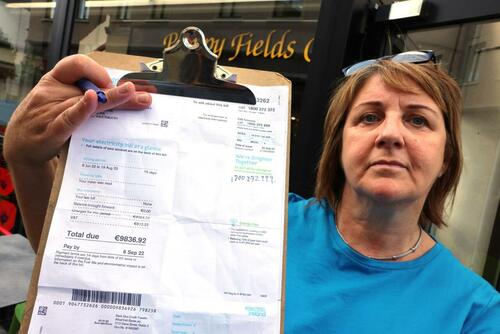zerohedge | A Senate bill is raising fears among some for its potential to enable Big Tech and mainstream media outlets to collude against smaller and independent media outlets.
The bill, dubbed the Journalism Competition and Protection Act (JCPA), would supersede some existing antitrust laws and allow media companies to band together to negotiate with Big Tech platforms like Facebook, Google, and Twitter.
Specifically, the JCPA says:
“A news content creator may not be held liable under the antitrust laws for engaging in negotiations with any other news content creator during the 4-year period beginning on the date of enactment of this Act to collectively withhold content from, or negotiate with, an online content distributor regarding the terms on which the news content of the news content creator may be distributed by the online content distributor.”
In brief, this means that online and print media outlets, including some of the largest and longest-established names in the industry, could band together in a kind of media union to demand concessions from tech companies in order for the coalition to continue to allow their content on the platform. Under existing antitrust laws, such cartels—which describe a collusion of firms in an industry to join together for a common financial or industry outcome—are decidedly illegal.
Proponents of the JCPA have presented it as a much-needed panacea to address dwindling numbers of dedicated local media companies who, proponents say, are often left behind in the umbrella of Big Tech algorithms and advertising capacity.
In a change.org petition that has garnered over 23,000 signatures, the News Media Alliance, one of the most outspoken supporters of the bill, explained this position, presenting it as a hardline position against the reach of big tech power and influence.
“Today, many local newspapers are struggling to stay in business. Big Tech platforms, such as Facebook and Google, control how we access trustworthy news online and how journalism is displayed, prioritized, and monetized. They capture the vast majority of all digital advertising dollars because of their outsized ability to collect consumer data.
“Local newspaper revenues have gone down and as a result, thousands of journalists have been laid off, ‘news deserts’ are emerging across the country, and dangerous misinformation that threatens the fabric of our democracy continues to flourish.”
But opponents of the bill have raised alarm bells, warning that in practice the policy will only serve to benefit established legacy and mainstream outlets, to the exclusion of anti-establishment, independent publications.
Specifically, opponents point to a section of an updated draft of the JCPA that could effectively permit legacy media cartels to demand that tech platforms censor or outright refuse to permit newer, less-established media outlets from publishing on the platform.



